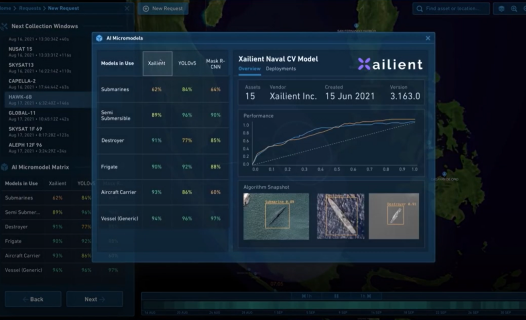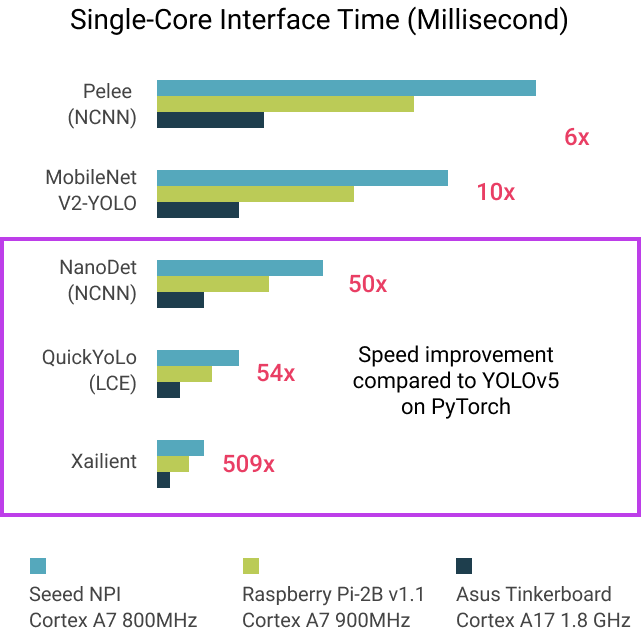Defense Solutions
Xailient algorithms and tools add intelligence to low-power cameras without an internet connection.
Xailient provides Commercial Off-the-Shelf Computer Vision AI technology for and
Xailient’s Core Capabilities
Xailient’s computer vision AI is optimized for tiny devices using:
Smart Motion Detection
Object Recognition
Tiny Edge Devices
Xailient’s patented Detectum technology is the worlds’ most efficient AI for Computer Vision. Xailient puts the maximum intelligence into environments with the least size, weight, and power constraints.
Computer Vision AI – see what matters


Space, Weight & Power Advantages
Bandwidth Reduction / RF Silent


Autonomous & Uncrewed Systems
Xailient can address visual spectrum, IR, Hyperspectral, SAR, and other sensor data that produces a 2D ‘image’. Possible applications include Land, Surface/Underwater & Aerial:
- MQ-4C Triton
- MQ-9B Reaper
- Integrated Undersea Surveillance Systems
- Maritime Uncrewed Aerial Systems
- Tactical Uncrewed Aerial Systems
- Future Mine Warfare & Hydrographic Vessels and associated mission systems
- Future Army Watercraft and associated mission systems
Advanced Space Applications
Xailient can address visual spectrum, IR, Hyperspectral, SAR and other sensor data that produces a 2D ‘image’.
- Satellite Communication
- Satellite Communication Assurance
- Terrestrial Operations in Contested Space
- Space Situational Awareness


Analyze in Orbit and reduce downlink bandwidth

Palantir deploys into orbit Xailient’s computer vision AI
For Palantir, Xailient demonstrated an ability to use open-source satellite imagery to detect marine vessels within extremely constrained systems and to do so fast enough to allow for dynamic retasking of the satellite.
Read more

3rd Party Tested
Xailient AI has been validated by 3rd parties as up to 509x faster than conventional Computer Vision AI. We are partnered with Sony Semiconductor and Maxim Integrated, bringing this technology to the private sector. Our software provides faster and more accurate real-time inference, as well as the tools required for creating and maintaining custom AI.
Xailient supports subsystem providers with custom and COTS AI.
If you are a Defense Capabilities Manager or other stakeholder, we want to hear from you!